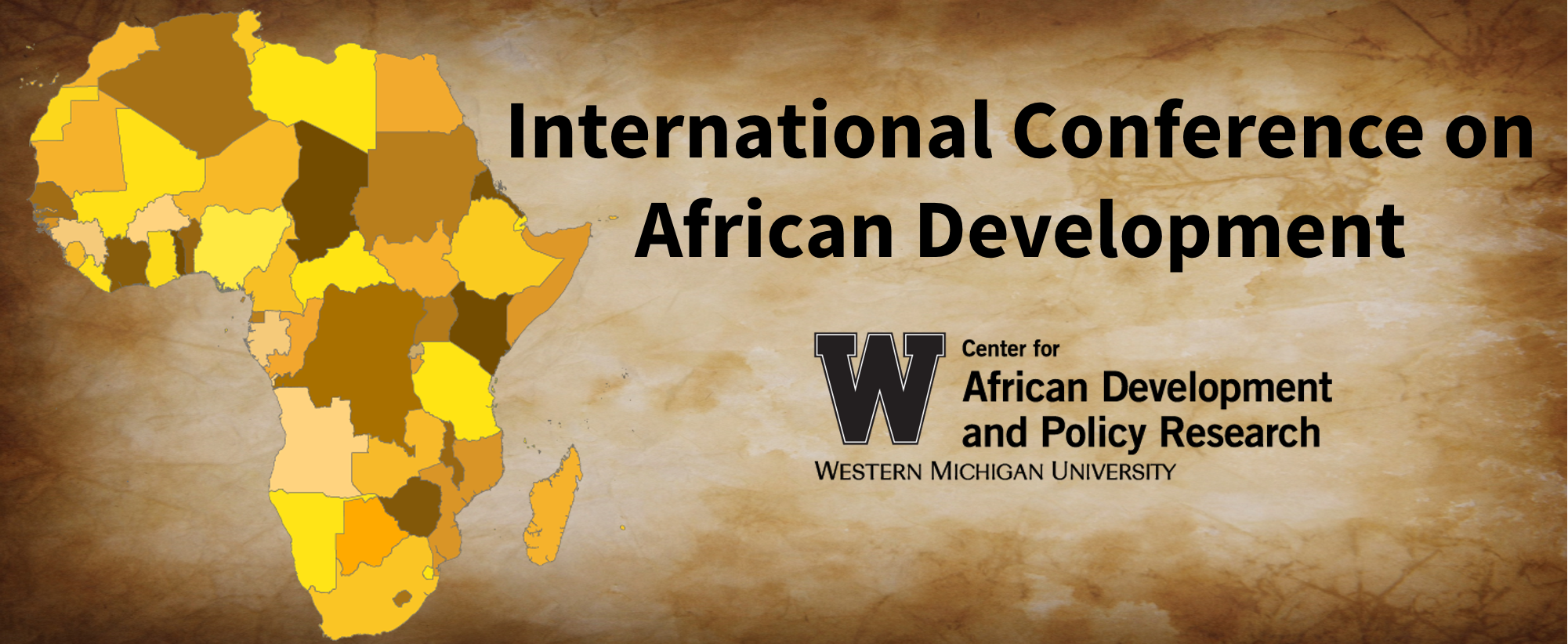3.1 Peace and Sustainable Development in the Horn of Africa
Presenter's country
Ethiopia
Start Date
17-8-2018 1:00 PM
End Date
17-8-2018 2:00 PM
Location
Bernhard Center 105-107
Submission type
Presentation
Abstract
Peace and development are interconnected. Some say that the more developed you are, the more secure you become, and the more secure you are, the more you develop. As much as prolonged economic decline can be a potential source of conflict, economic growth alone may sometimes intensify tensions in the absence of meaningful cooperation that addresses competition over shared resources among states. The case of Africa in the Horn of Africa is nothing different. Integration of regional economies and cooperation for joint development increase interdependence and therefore, reduce the risk for violent conflict among member states. Where frameworks for cooperation of shared resources or infrastructure are in place, an environment of regular contact and collaboration among policy makers follows, and this, in turn, contributes to building trust, facilitates cooperation, and reduces tensions among the member states. Integration of infrastructure such as railroads, power grids and dams involving joint investment make conflict a lose-lose situation, thereby discouraging it. Increased trade and other mutually beneficial linkages also tend to reduce the likelihood of conflict, while cooperation for the development of transit corridors and access to the sea by land-locked countries increase the stake of joint security cooperation which itself is a basis for joint development. This paper introduces the relationship between peace and sustainable development beginning with a review of the contending concepts. The paper will try to visit some of the perceived causes and consequences of intra- and inter-state conflicts in the context of the Horn of Africa. The assumption is that many of the primary causes of conflict are related to questions surrounding sustainable development, sharing natural resources and/or accessing natural resources. Claims over territories, access to the sea and transit corridors, and competition over the use of natural resources like trans-boundary water resources are examples of such perceived causes of conflicts. In this respect, the paper will limit itself to cover the management and development of some shared resources like trans-boundary water resources, access to the sea and the development of transit corridors. Problems associated with divided communities and cross border criminality including threats of terrorism will also be discussed. In this regard, cross border economic cooperation, criminal control and early warning including response mechanisms will be investigated as ways of enhancing peace and development in border areas. The paper will also broadly examine the link between environment and security. The objectives or research questions will be:
• What is the nexus between peace and development and how do we associate it to the Horn of Africa context?
• How do we comprehend problems of peace and security and approaches to solving them in a regional context?
• How do we examine the regional development issues and investigate their link to regional peace and security?
3.1 Peace and Sustainable Development in the Horn of Africa
Bernhard Center 105-107
Peace and development are interconnected. Some say that the more developed you are, the more secure you become, and the more secure you are, the more you develop. As much as prolonged economic decline can be a potential source of conflict, economic growth alone may sometimes intensify tensions in the absence of meaningful cooperation that addresses competition over shared resources among states. The case of Africa in the Horn of Africa is nothing different. Integration of regional economies and cooperation for joint development increase interdependence and therefore, reduce the risk for violent conflict among member states. Where frameworks for cooperation of shared resources or infrastructure are in place, an environment of regular contact and collaboration among policy makers follows, and this, in turn, contributes to building trust, facilitates cooperation, and reduces tensions among the member states. Integration of infrastructure such as railroads, power grids and dams involving joint investment make conflict a lose-lose situation, thereby discouraging it. Increased trade and other mutually beneficial linkages also tend to reduce the likelihood of conflict, while cooperation for the development of transit corridors and access to the sea by land-locked countries increase the stake of joint security cooperation which itself is a basis for joint development. This paper introduces the relationship between peace and sustainable development beginning with a review of the contending concepts. The paper will try to visit some of the perceived causes and consequences of intra- and inter-state conflicts in the context of the Horn of Africa. The assumption is that many of the primary causes of conflict are related to questions surrounding sustainable development, sharing natural resources and/or accessing natural resources. Claims over territories, access to the sea and transit corridors, and competition over the use of natural resources like trans-boundary water resources are examples of such perceived causes of conflicts. In this respect, the paper will limit itself to cover the management and development of some shared resources like trans-boundary water resources, access to the sea and the development of transit corridors. Problems associated with divided communities and cross border criminality including threats of terrorism will also be discussed. In this regard, cross border economic cooperation, criminal control and early warning including response mechanisms will be investigated as ways of enhancing peace and development in border areas. The paper will also broadly examine the link between environment and security. The objectives or research questions will be:
• What is the nexus between peace and development and how do we associate it to the Horn of Africa context?
• How do we comprehend problems of peace and security and approaches to solving them in a regional context?
• How do we examine the regional development issues and investigate their link to regional peace and security?


